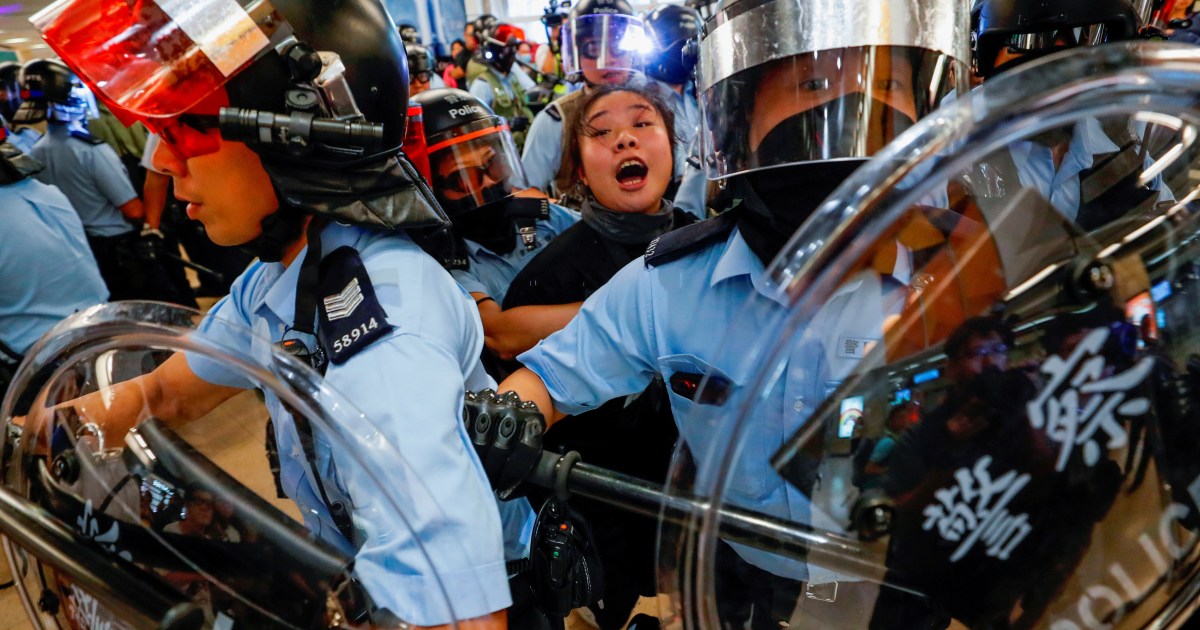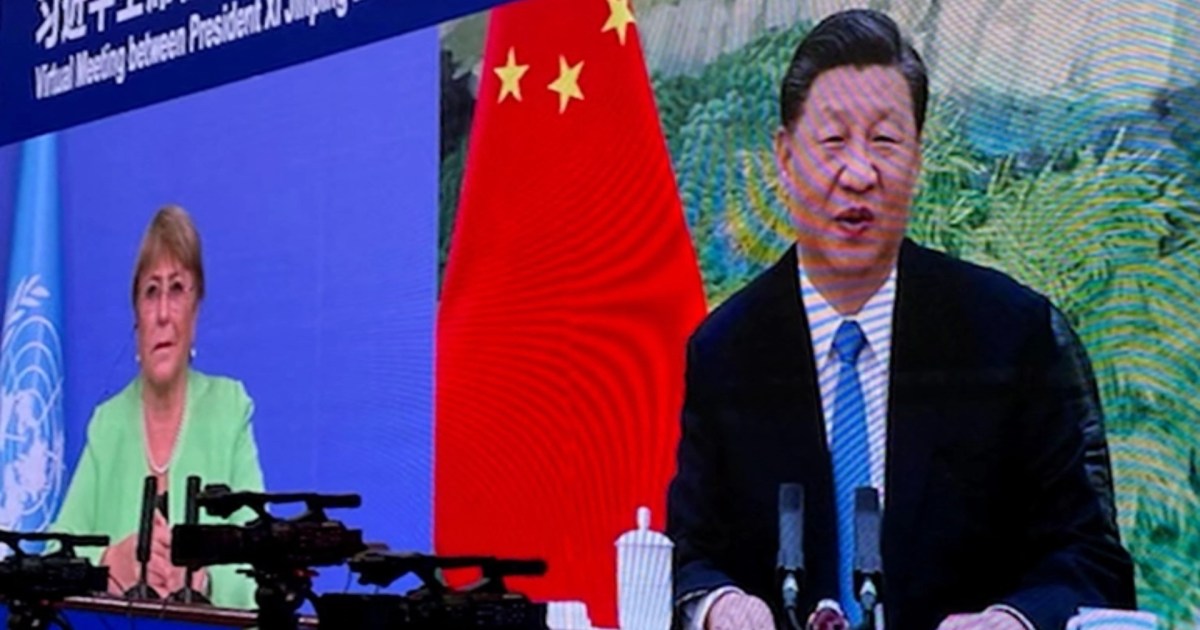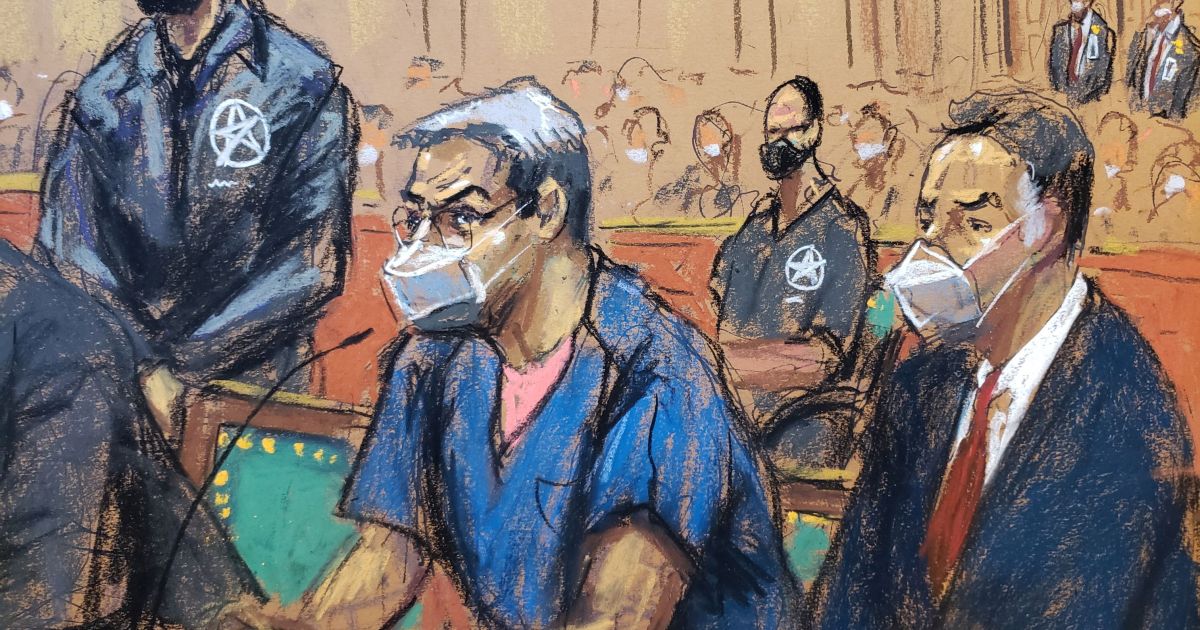Hong Kong: 25 years under Chinese rule
Hong Kong marks 25 years since it was returned to Chinese rule on July 1.
Chinese President Xi Jinping is expected to travel to the territory to mark the occasion, which comes three years after mass protests calling for democracy that led to the introduction of a sweeping National Security Law that critics say has “decimated” Hong Kong’s freedoms.
Xi will oversee the inauguration of former security chief John Lee as the territory’s new leader. Lee, who started his career in the police, has promised “strong governance” and to address the territory’s housing issues, which Beijing has pinpointed as a source of upset in one of the world’s most unequal cities.
Below are the major events that have taken place in Hong Kong since the handover in 1997.
June 30, 1997
Just before midnight on a rainy Monday evening, Prince Charles, United Kingdom Prime Minister Tony Blair and Hong Kong’s 28th and final British governor Chris Patten attend a sombre ceremony that brings 156 years of colonial rule to an end.
Patten and the other officials leave the territory on the Royal Yacht Britannia.
July 1, 1997
Shipping tycoon Tung Chee-hwa is sworn in as Hong Kong’s chief executive and the territory’s first post-colonial leader at a specially-built convention centre overlooking the harbour. Veteran civil servant Anson Chan becomes his deputy.
Under the Sino-British Joint Declaration of 1984, Beijing had promised to respect Hong Kong’s freedoms and “way of life” for at least 50 years, and the territory was to be governed under the so-called “one country, two systems” framework.
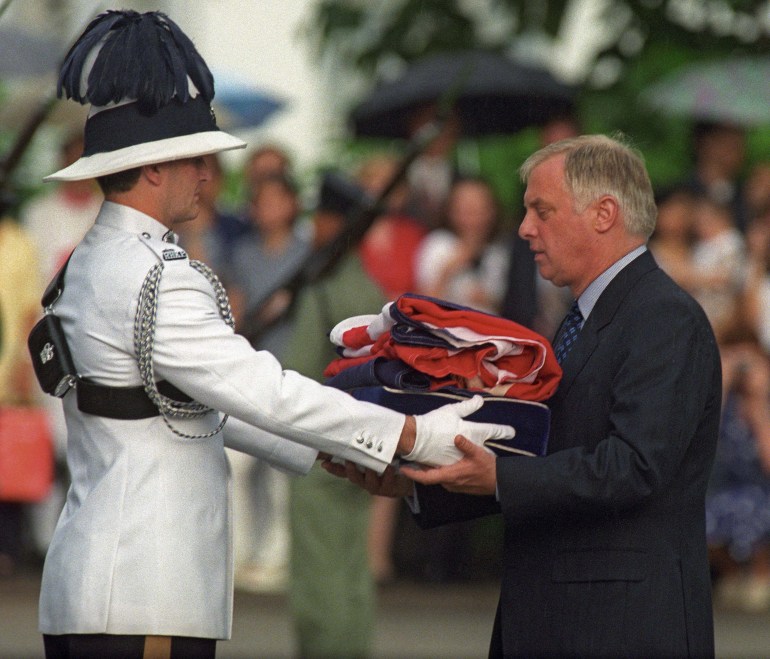
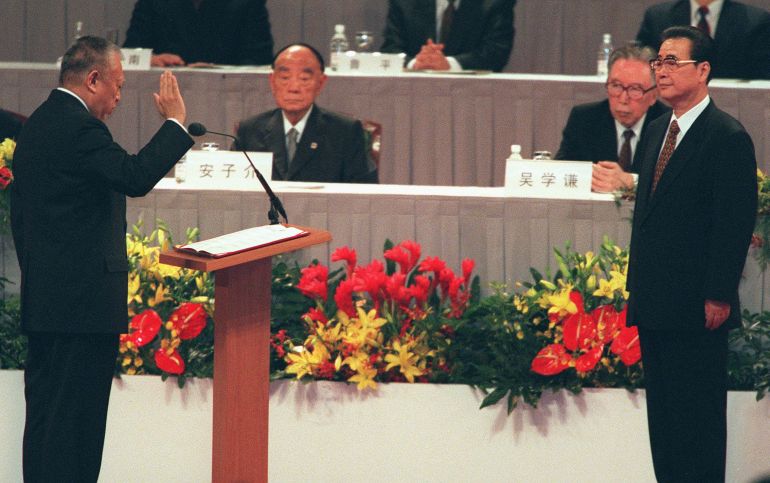
July 1998
Hong Kong’s new airport opens on an artificial island at Chek Lap Kok, replacing Kai Tak after more than 70 years.
Then Chinese President Jiang Zemin declares the facility, designed by British architect Norman Foster, officially open.
March 2003
An outbreak of a new respiratory disease, SARS, hits Hong Kong hard.
At least 298 people die from the virus.
July 2003
Mass protests erupt against the government’s plan to implement “anti-subversion laws” under Article 23 of the Basic Law, Hong Kong’s mini constitution.
Nearly half a million people join the protests. The administration is forced to drop the proposals.
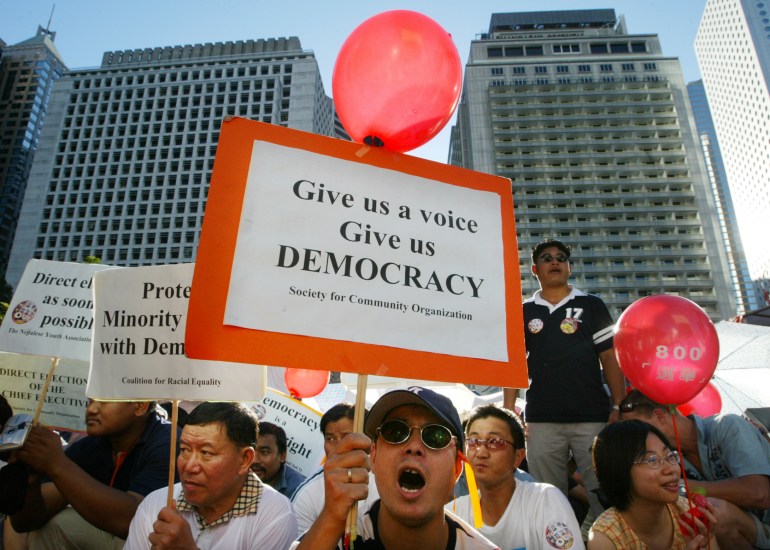
March 2005
Tung quits, blaming poor health. He had been criticised by Chinese president Hu Jintao in December 2004.
Former top administration official Donald Tsang takes over in June.
July 2006
Tens of thousands of people rally for full democracy in Hong Kong.

July 2007
Donald Tsang’s administration is sworn in after winning an election and announces a plan for full democracy.
December 2007
Beijing says the people of Hong Kong will be allowed to directly elect their leader in 2017, and their legislators in 2020.
September 2008
Pro-democracy camp wins more than a third of the seats in the Legislative Council, giving them a veto over legislation.
2010
The International Commerce Centre (ICC) in Kowloon becomes Hong Kong’s tallest building.
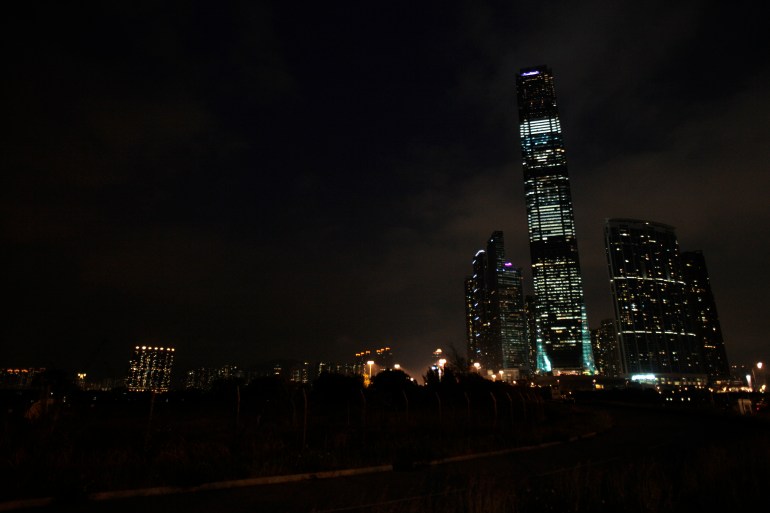
July 2012
CY Leung becomes Hong Kong’s chief executive.
August 2014
Beijing changes its earlier promise on elections for the territory’s leader and says only Beijing-backed candidates can stand.
September 2014
Tens of thousands of people occupy Hong Kong’s city centre in protests calling for an open nomination of candidates for the city’s leader.
Leung declares the Occupy Central protests illegal.
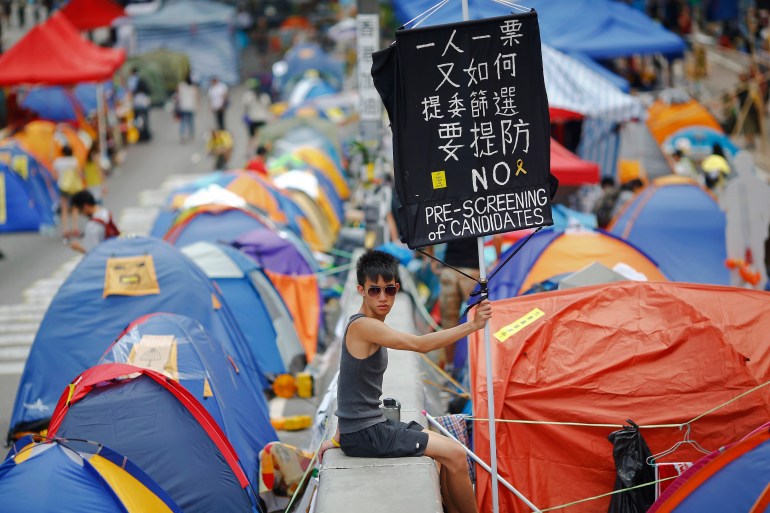

December 2014
Police clear Occupy Central’s main camp.
October – December 2015
Five Hong Kong booksellers disappear between October and December, later emerging in mainland China where their “confessions” are broadcast on state television.
November 2016
The high court disqualifies pro-independence legislators Sixtus Leung and Yau Wai-Ching from taking their seats in the Legislative Council after they refused to pledge allegiance to China during a swearing-in ceremony.
February 2017
Former Chief Executive Donald Tsang is sentenced to 20 months in prison for misconduct in public office after he was found to have rented a luxury apartment in China from a tycoon whose broadcast licence he also approved.
March 2017
Carrie Lam, born in Hong Kong in 1957 and a lifelong civil servant, becomes the territory’s next chief executive, promising to unite a territory increasingly anxious about China’s tightening grip.
February 2019
Lam introduces proposals to allow extradition to mainland China, triggering widespread concern.
Hong Kong’s extradition arrangements had been negotiated in 1997 when the United Kingdom returned the territory to China, and Taiwan, Macau and the mainland were not included in that agreement.
The Hong Kong Bar Association has said that was a “deliberate decision” given the “fundamentally different criminal justice system operating in the mainland and concerns over the mainland’s track record on the protection of fundamental rights”.
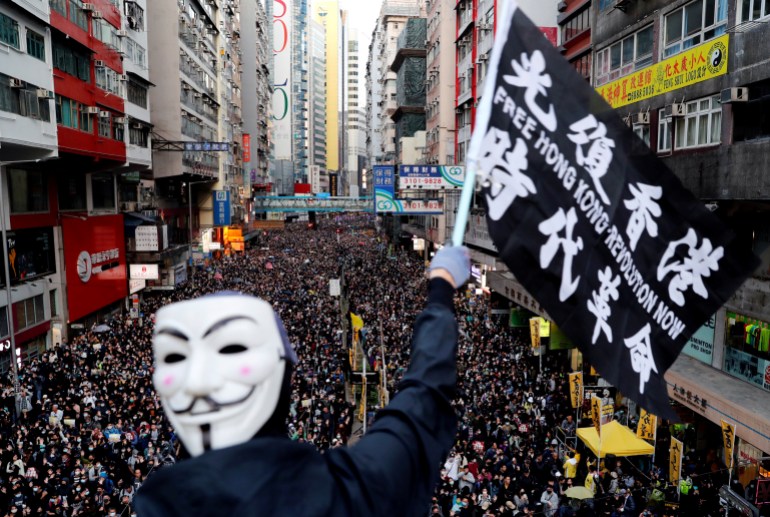
June 4, 2019
Organisers say some 180,000 people join the annual Tiananmen Square vigil in Victoria Park, marking 30 years since the crackdown in the Chinese capital.
Police put the turnout at 37,000.
June 9, 2019
Hundreds of thousands of people march through the streets of Hong Kong to show their opposition to the extradition bill. Many see it as a further erosion of Hong Kong’s autonomy and fear that it will allow the government in Beijing to pursue its opponents.
Mainland courts, which are controlled by the Communist Party, have a 99 percent conviction rate.
July 1, 2019
Protesters force their way through police barricades and storm the Legislative Council building, daubing the walls with graffiti.
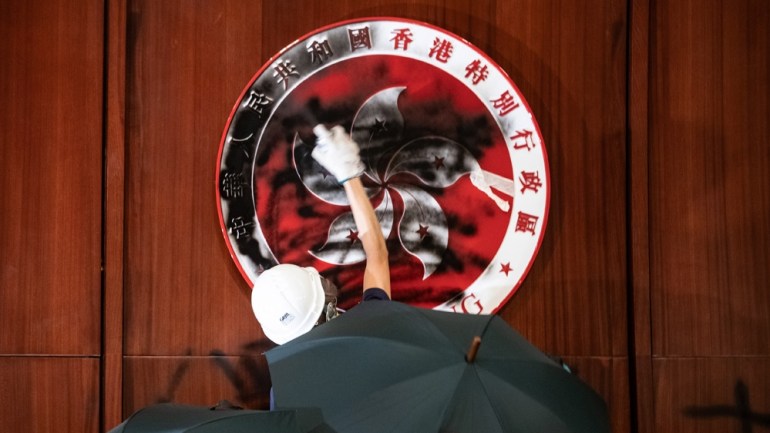
September 2019
Lam finally announces the formal withdrawal of the extradition bill, which she previously said was “dead”.
But after months of unrest and a sense that the government is ignoring them, the protests evolve into a broader campaign to include direct elections, an inquiry into police brutality and the release of all those detained during the protests.
November 2019
Confrontations between police and protesters escalate into fiery violence at the campuses of the Chinese University of Hong Kong and the Hong Kong Polytechnic University.
Police use tear gas, rubber-coated bullets and water cannons against protesters armed with petrol bombs, slingshots and even javelins.

July 1, 2020
China imposes a National Security Law at 11pm on June 30. The law punishes any act Beijing deems as subversion, secession, terrorism and collusion with foreign forces with life in prison.
December 2020
Media tycoon Jimmy Lai is arrested under the security law and then jailed after a court decides to revoke bail that had been granted on stringent conditions.
March 2021
The National People’s Congress in Beijing approves changes to Hong Kong elections to ensure only “patriots” are able to run for office.
June 2021
The Apple Daily, Lai’s unapologetically pro-democracy tabloid, announces it will close after a series of police raids on its offices targeting senior executives and journalists. The publisher prints one million copies of the paper’s final edition and Hong Kong people queue up early in the morning to buy it.
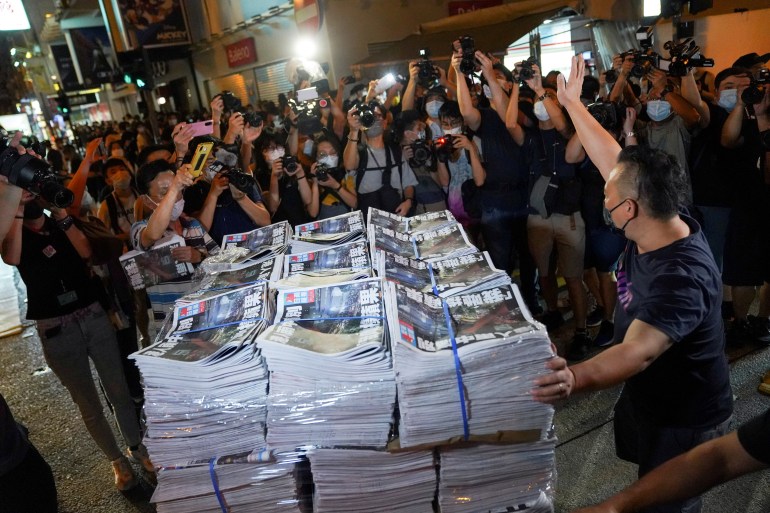
July 2021
Former waiter Tong Ying-kit is sentenced to nine years in prison under the National Security Law after becoming the first person to be convicted under the law.
Tong was found guilty of “terrorism” for driving his motorbike into three police officers, and “secession” for flying the “Liberate Hong Kong, revolution of our times” flag at a rally.
November 2021
The M+ contemporary art museum finally opens.
Fourteen years in the making, the Herzog and de Meuron-designed building is the crown jewel of Hong Kong’s West Kowloon cultural district.
December 2021
The postponed Legislative Council election takes place under the Beijing-crafted “patriots only” rules and turnout falls to its lowest level since the handover.
Under cover of darkness, the University of Hong Kong removes the ‘Pillar of Shame’ – a tribute to the victims of the 1989 Tiananmen Square crackdown – triggering an outcry from students, the sculpture’s Danish artist and human rights advocates.
The sculpture had stood in a quad at Hong Kong’s top university since 1997.
February 2022
A wave of Omicron-fuelled coronavirus cases rips through an unvaccinated and apparently unprepared Hong Kong.
Hospitals are inundated and elderly patients are forced to wait in temporary tents outside.
By March, the territory is suffering the world’s highest death rate.
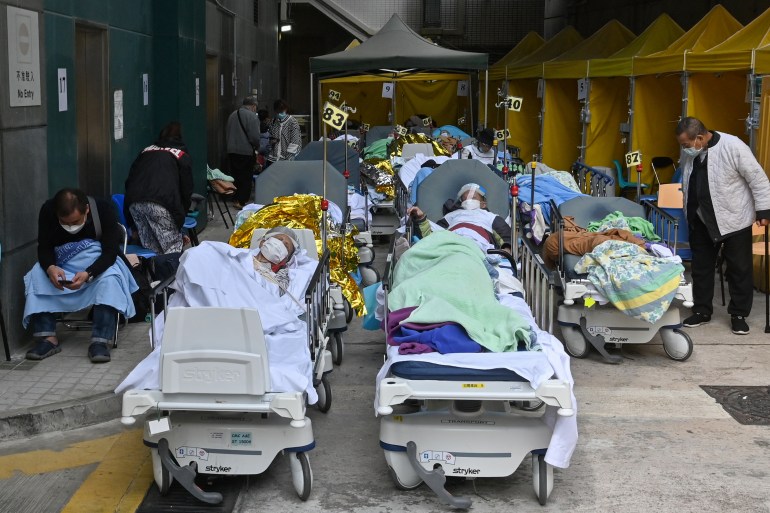
April 2022
Carrie Lam says she will not stand for a second term in office, citing family reasons.

Lee steps forward as the only candidate for chief executive and is confirmed in the post in May.
He won 1,416 votes from the 1,500-strong Election Committee.

